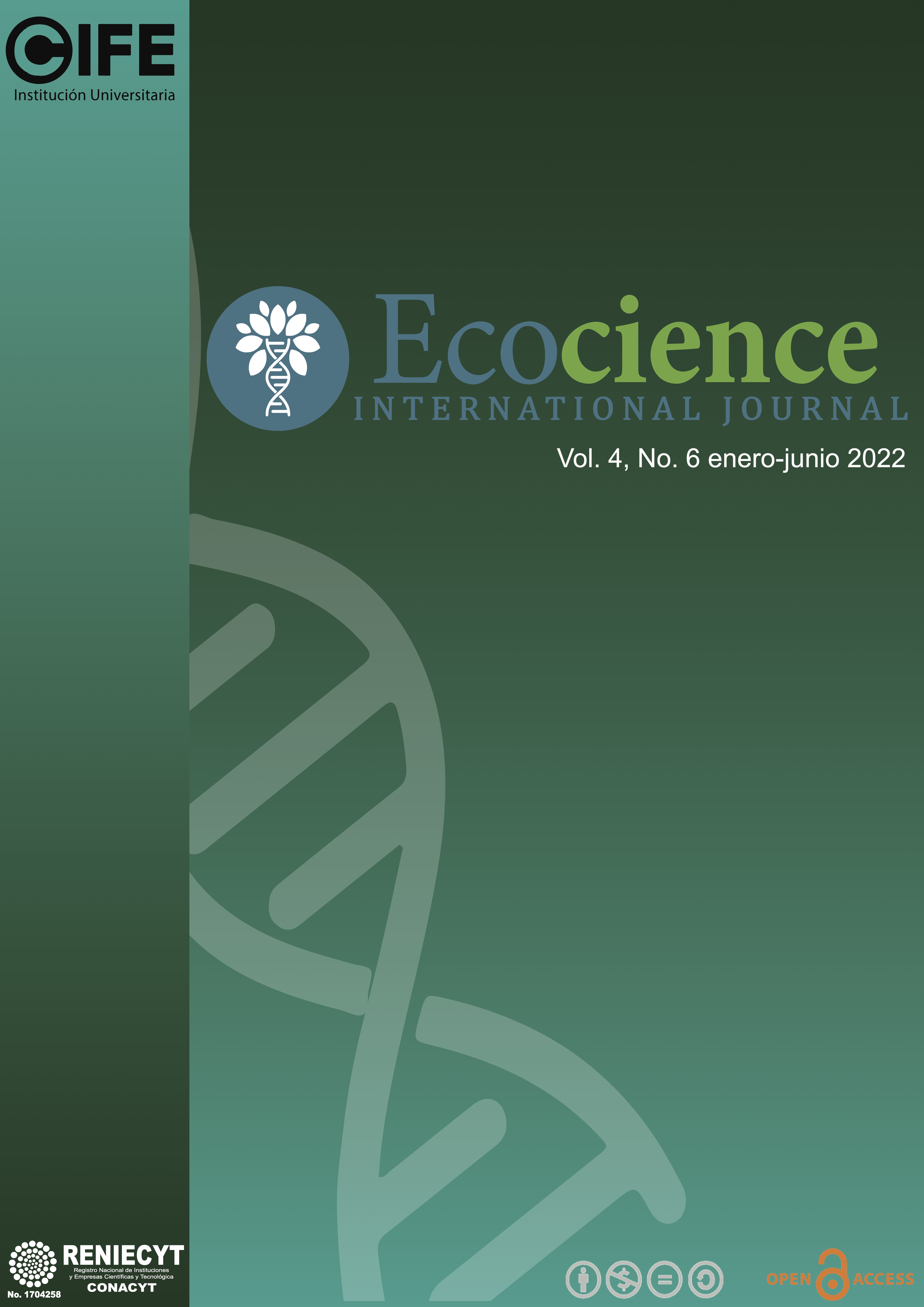Abstract
In Peru, the massive admission to the university and non-university schools of educational sciences without an adequate filter was completed, causing the massive graduation without the adequate evaluation of the degree, for which the main problem that lay in the relationship between the entry of people not prepared to start the university or non-university professional career in educational sciences, and the graduation without changes, as well as the public policies in Peruvian education that did not place limitations, causing an avalanche of unprepared professionals, to Unlike other countries, taking Finland as a reference, which at the moment is an international example of education at the level of entry into the professional education career (teaching). The objective was to determine the importance of the student entering the School of Education Sciences in university or non-university centers having suitable skills. The importance of the entrance evaluations to teaching and the filter for the entrance of the students to the educational sciences was concluded.
References
Alvarado Vázquez, J. R., & Luna Nemecio, J. (2022). Sustentabilidad, nueva normalidad y educación presencial: retos para la formación profesional de los docentes. Revista Metropolitana de Ciencias Aplicadas, 5(2), 209-217. https://remca.umet.edu.ec/index.php/REMCA/article/view/519
Aprendizaje y enseñanza docentes. (s. f.). El aprendizaje y la ´enseñanza´ docentes: Intervención desde la formación para el cambo docente. https://bit.ly/3SRCEwn
Avendaño Castro, W. R., Paz Morales, L., & Rueda Vera, G. (2017). Políticas públicas y educación superior: análisis conceptual del contexto colombiano. Revista Venezolana de Gerencia, 22(79): 467-485. https://bit.ly/3JK1JF1
Bicocca, R. M. (2019). Repensar la educación. Cultura Económica, 25(68): 77-79.
Campoy Aranda, T. J., & Gomes Araujo, E. (2009). Técnicas e instrumentos cualitativos de recogida de datos (Vol. 284). Editorial EOS. https://bit.ly/3JJNiku
César, R. G., & Oswaldo, B. C. (2020). Realidad y perspectiva de la Educación Superior en el Perú. Revista Ciencia y Tecnología, 16(4): 97-108. https://doi.org/10.17268/rev.cyt.2020.04.09
Cuenca, R. (2020). La evaluación docente en el Perú. (Y. López, Ed.) Lima, Perú: Instituto de Estudios Peruanos. https://bit.ly/3vV23Lv
Cuenca, R., y Vargas, J. C. (2018). Perú: el estado de políticas públicas docentes. Lima, Perú: BID. https://bit.ly/2MlXnGc
Cueto Urbina, E. (2020). Investigación Cualitativa. Applied Sciences in Dentistry, 1(3): 1-2.
Eguren, M., & de Belaunde, C. (2019). No era vocación, era necesidad: motivaciones para ser docente en el Perú. Instituto de Estudios Peruanos: Perú. https://bit.ly/3vUoNv4
Enkvist, I. (2017). Comparación entre diferentes sistemas educativos: Finlandia, Singapur y Suecia. Comparación entre diferentes sistemas educativos: Finlandia, Singapur y Suecia. España. https://bit.ly/3Pdbe0N
Esteban Nieto, N. (2018). Tipos de Investigación. Tipos de Investigación. https://bit.ly/3QfSzCS
EstudiaPerú. (2022). Estudia Perú. Institutos Superiores. https://bit.ly/3QhGXPG
Flores Ari, S. E., Osores González, T. R., Ayestas Ysique, A. W., Pumacayo Manuelo, L. M., Córdova Proleón, C. T., Luquequispe Condori, M., & Florez Bovadilla, J. S. (2022). Análisis de resultados de las evaluaciones docentes en el Perú: Serie de estudios elaborados durante el año 2020. (Primera edición digital ed.). (M. d. Educación, Ed.). Lima, Perú: Dirección de Evaluación Docente. https://bit.ly/3AbgOwk
Grupo Propuesta ciudadana. (2021). Nota de información y Análisis. PRESUPUESTO PÚBLICO 2022: ¿Buscando hacer un quiebre?: https://bit.ly/3JMCqCy
Huanca-Arohuanca, J. W., Asqui Manzano, M. L., Mamani Jilaja, D., Mamani-Coaquira, H., Huayanca Medina, P. C., & Charaja Cutipa, F. (2021). Habilidades lingüísticas y comprensión lectora en la oquedad del siglo XXI: una mirada a la Institución Educativa Politécnica de Puno-Perú. Horizontes Revista de Investigación en Ciencias de la Educación, 5(18): 537-555. https://doi.org/https://doi.org/10.33996/revistahorizontes.v5i18.194
Instituto Nacional de Estadística e Informática. (2019). Instituto Nacional de Estadística e Informática. Sistema educativo peruano ofrece cerca de ocho mil programas profesionales, pedagógicos, tecnológicos y técnico productivas: https://bit.ly/3SEu5EV
Instituto Nacional de Estadística e Informática. (2014). Clasificador de carreras de Educación Supeior y Técnico Productivas (Versión 1). Clasificador de carreras de Educación Superior y Técnico Productivas. Instituto Nacional de Estadística e Informática, Lima, Lima. https://bit.ly/2FwZkzA
Judit, A., & Judith, B. (2019). El Sistema Educativo Finlandés y el aprendizaje invisible. Pedagogías Emergentes en la Sociedad Digital. https://bit.ly/3SINvZs
Luna Nemecio, J. (2022). Sustentabilidad versus emergencia ambiental: los corredores urbano-industriales como factor de conflictos hídricos en el estado de Morelos, México. Universidad y Sociedad, 14(2), 90-100. https://rus.ucf.edu.cu/index.php/rus/article/view/2680
Maxwell, J. A. (2019). Diseño de investigación cualitativa. GEDISA. https://bit.ly/3zG1dDw
Morillo Miranda, E. (2007). Reformas educativas en el Perú del siglo XX. Revista Iberoamericana de Educación, 1-8. https://bit.ly/3zLmn35
Niño-Gutiérrez, N. S. & Santos Santos, J. G. (2015). La relación sociedad-naturaleza por competencias en la educación intercultural guerrerense. Tlamati, 6(1): 465-471. http://tlamati.uagro.mx
Obaco Soto, E. E. (2020). Competencias docentes para la resolución de conflictos en el ámbito escolar. Educere La Revista Venezolana de Educación, 24(77): 37-46. https://bit.ly/3vRRY1U
Samaniego, P. (2018). Ni tanto, ni tan poco. Hachetetepé. Revista científica de Educación y Comunicación (17): 43-58. https://doi.org/https://doi.org/10.25267/Hachetetepe.2018.v2.i17.6
Tobón, S. & Luna-Nemecio, J. (2020). Proposal for a new talent concept based on socioformation. Educational Philosophy and Theory 53(1), 21-33-. https://doi.org/10.1080/00131857.2020.1725885
Tocora Lozano, S. P., & García González, I. (2018). La importancia de la escuela, el profesor y el trabajo educativo en la atención a la deserción escolar. Varona. Revista Científica Metodológica (66). https://bit.ly/3Ad2eEM
Zeballos Pinto, Z. R., Morales Márquez, J. J., Hernández Águila, E. d., & Aquino López, H. E. (2020). Inserción y trayectoria laboral de los egresados de ciencias de la educación. Un estudio comparativo. Tesis, Zapopan, Jalisco. https://bit.ly/3JQ4xk7

This work is licensed under a Creative Commons Attribution-NonCommercial-NoDerivatives 4.0 International License.
Copyright (c) 2022 Ecocience International Journal


